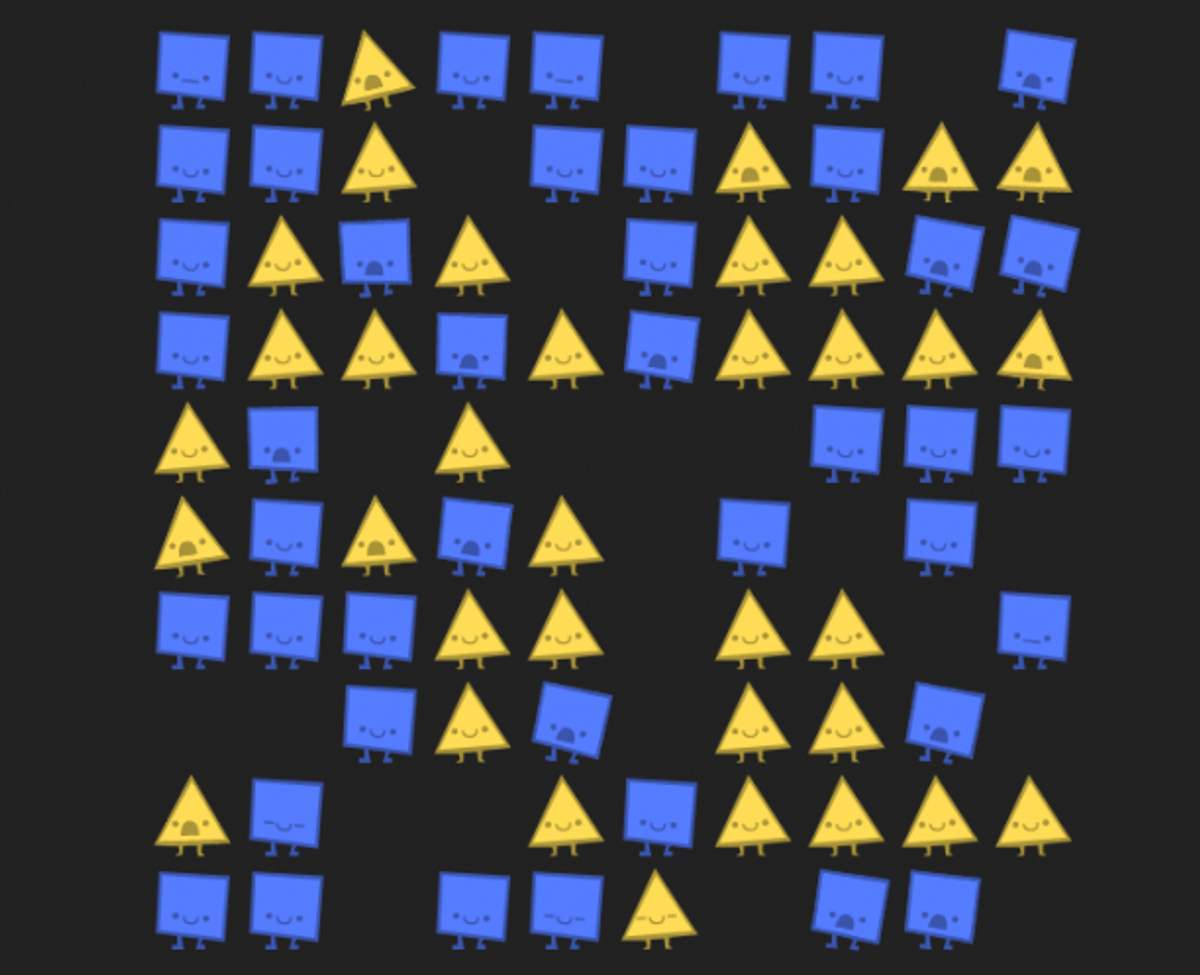A new "game" called the Parable of the Polygons is an adorable and eloquent primer on issues of segregation. Created by programmers Vi Hart and Nicky Case, the website allows you to play God in a little society of blue squares and yellow triangles. It's the players job to make sure that all the residents are happy with where they live, and they have very specific desires.
Drawing from humanity's tendency to unconsciously (or consciously) favor things that are similar to us, the game's central premise is that a given square or triangle is only happy if at least a third of their neighbors are the same as they are. They don't love being in a neighborhood of all one shape, but they'll tolerate it. Only upset shapes can be moved.
If you play around with the game a few times, you'll notice that these preferences--just simple math predicting human behavior--lead to segregated areas quickly.
Science of Us' Jesse Singal writes of the subtle complexities of the game:
Anyway, the point here is that even when individuals are only slightly biased with regard to where they live, over time the aggregate result is segregation. It’s another version of an effect I wrote about back in May: Because of the subtle, sometimes unconscious ways we favor people similar to us, there are lots of ways racist outcomes can pop up even in the absence of all that much explicit or malicious racism.
Plus, on the housing front, things are already segregated because there has been a lot of very explicit racism, which lingers today, from white suburbs in midcentury Detroit protesting, sometimes violently, every time a black family tried to move into the neighborhood, to ongoing housing-discrimination issuesin New York City. As the Parable of the Polygons simulations show in increasing complexity as you scroll down, that makes it harder and harder to desegregate, even as people get less and less explicitly racist or biased.
Check it out here.

Shares